“So unless one is self-realized, there is practically no use writing about Krsna. This transcendental writing does not depend on material education. It depends on the spiritual realization. You’ll find, therefore, in the comments of Bhagavatam by different acaryas, even there are some discrepancies, they are accepted as asat-patha [NOTE: “asat-patha” should be transcribed as“Arsha-prayoga”. Arsha-prayoga is a Sanskrit word meaning complete acceptance of what is left by the authorities, as it is, without any change at all]. It should remain as it is.”
(Srimad-Bhagavatam 7.5.23-24 — Vrndavana, March 31, 1976)
Prabhupada:This of should be strictly forbidden.
Radha-vallabha: So no corrections. That makes it simple.
Prabhupada: They can divide the synonyms. That’s all.
Radha-vallabha: Synonyms. So even…
Prabhupada: That is his tendency, to correct. That’s very bad. He should not do that.
Radha-vallabha: So I’ll just forget this, then.
Prabhupada: The system is: whatever authority has done, even there is mistake, it should be accepted.
Radha-vallabha: Oh.
Prabhupada: Asa-praya(?) [NOTE: “Asa-praya(?)” should be transcribed as“Arsha-prayoga”] That is ha… He should not become more learned than the authority. That is very bad habit….
Prabhupada: Why finish it? Whatever is done is done. No more….
Radha-vallabha: Well, now that this system of no corrections anywhere, that makes it very simple. Then he can’t do anything. I don’t think he wants to, either. It makes it more simple for him. It makes him very uncomfortable.
Prabhupada: No corrections.
(February 28, 1977, Mayapura)
In the first quote above from Vrndavan, when listening to the audio one can hear that the transcription is clearly wrong. Prabhupada is transcribed as saying “asat-patha” but if you listen to the audio closely you will hear Srila Prabhupada clearly says “arsha-prayoga” not asat-patha. Also the words asat-patha make no sense in this context but the words arsha-prayoga make perfect sense.
On the second above quote from Mayapur, I could not find the audio for this, but considering that (as per my knowledge) the words arsha-prayoga are not used by Srila Prabhupada on a daily basis, it goes to reason that the transcriber may not have been familiar with them. Not understanding those words the transcriber typed in “Asa-praya(?)” with a question mark afterwords to indicate his failure to understand what Srila Prabhupada said.
According to Satsvarupa Prabhu in his Prabhupada Lilamrita he also informs us that Srila Prabhupada said arsha-prayoga establishing a no change policy:
But one day while sitting in the garden with Tamala Krsna, Svarupa Damodara, and others, Srila Prabhupada became very disturbed when he detected a mistake in one of his already printed books. Tamala Krsna was reading aloud a verse from the First Canto which began, “Munayah sadhu prsto ‘ham.” Srila Prabhupada had him read the synonyms.
Tamala Krsna read: “munayah-O sages; sadhu-this is relevant; prstah-questioned… ”
“Sadhu?” asked Srila Prabhupada. Thus he uncovered a thoughtless mistake made by the Sanskrit editors. Sadhu means “devotee,” not “this is relevant.” Srila Prabhupada became very angry and denounced the “rascal Sanskrit scholars.” “A little learning,” he said “is dangerous. Immediately they think they have become big scholar, thinking, “I shall arrange!’ And then they write all nonsense.” He continued speaking about the mistake for half an hour. He was disturbed. He ordered Tamala Krsna to write at once to the BBT and stop these speculations by his disciples-changing his books in the name of editing The devotees were startled to see Prabhupada so angry; he was supposed to be peacefully relishing a Srimad-Bhagavatam reading here in his garden. Such a change was very serious, he said, because it changed the meaning. “Even if the authorized acaryas would make a mistake,” he said, “it would not be changed. This is arsa-prayoga. In this way the acaryas are honored.”
(Srila Prabhupada Lilamrita, chapter 52 “I Have Done My Part”)

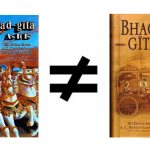
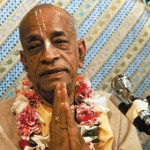


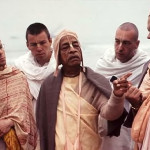

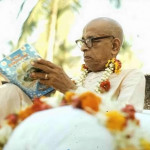
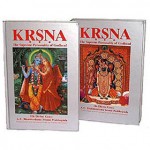

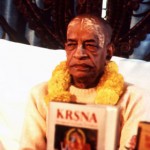
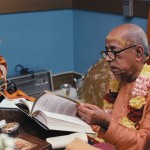
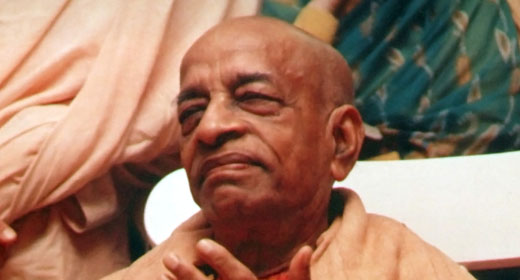
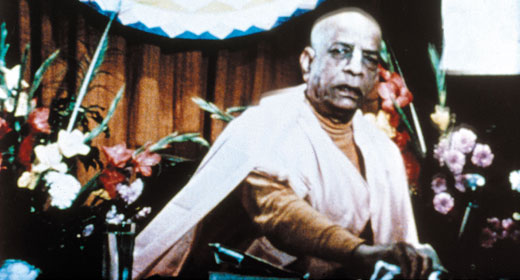
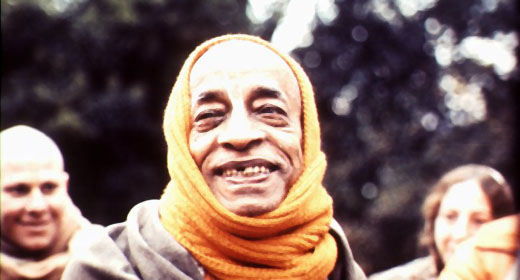
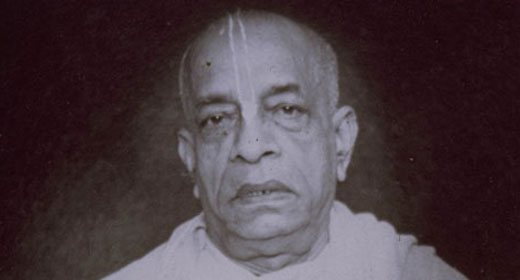

In the quoted text we have the following:
Prabhupada: Asa-praya(?) [NOTE: “Asa-praya(?)” [should be transcribed as “Arsha-prayoga”](February 28, 1977, Mayapura)
Then the author states:
“In the first quote above from Vrndavan, when listening to the audio one can hear that the transcription is clearly wrong. Prabhupada is transcribed as saying “asat-patha” but if you listen to the audio closely you will hear Srila Prabhupada clearly says “arsha-prayoga” not asat-patha. Also the words asat-patha make no sense in this context but the words arsha-prayoga make perfect sense.”
However after reading the following letter, I have come to a different conclusion:
“So far your telling me that some devotees consider that because there may be some grammatical discrepancies in my Srimad-Bhagavatam, first canto, then they may also be allowed to translate with errors accepted, that is just like imitating Raslila. When you do all other things like Krishna, they you can do Raslila. So if these other writers can do like me and spread Krishna Consciousness all over the world by becoming big Vedic scholars, then they can do. If one is too big, there is no mistake. Arsapreyaya means there may be discrepancies but it is all right. Just like Shakespeare, sometimes there are odd usages of language, but he is accepted as authority. I have explained all these things in my Preface to First Canto.”
(Letter to: Mandali Bhadra — Jaipur 20 January, 1972)
“Arsapreyaya means there may be discrepancies but it is all right.”
This is what Prabhupada is saying above (February 28, 1977, Mayapura).
It is actually 2 words combined
ārṣa—of the authoritative sages;
priyāyāḥ—just to please
ārṣapriyāyāḥ
So even if there is some grammatical error, to please the authoritative sages, we fools ignore them.
I mean to say – we fools ignore the grammatical errors – not the authoritative sages.
or;
Out of respect to the authoritative sages, even if there are grammatical imperfections in their presentation, we ignore such errors.
You say “Out of respect to the authoritative sages, even if there are grammatical imperfections in their presentation, we ignore such errors.”
SO THIS IS THE PONT. Understanding that nothing Srila Prabhupada did was “imperfect” or an “error”. Also that as it is clearly stated in Srila Prabhupada’s Introduction to his 1972 Bhagavad-Gita, Prabhupada sets the standard for whose words we should hear read and TRUST. Out of respect for him we must not change with our conditioned mind and imperfect senses: “The words spoken by the Lord are different from words spoken by a person of the mundane world who is infected with four defects. A mundaner 1) is sure to commit mistakes, 2) is invariably illusioned, 3) has the tendency to cheat others and 4) is limited by imperfect senses. With these four imperfections, one cannot deliver perfect information of all-pervading knowledge.
Vedic knowledge is not imparted by such defective living entities….One cannot say anything about the transcendental world without being free from materially contaminated consciousness.”
hare krsna
ārṣa-prayoga, is correct and is such in the Vedabase 2012.
It means:
“Literally “a form (of a word) pertaining to (or employed by) the rsis”. This is the term used for words that do not conform with the grammatical rules.”
(I got this from a sanskrit scholar)
“Arsapreyaya means there may be discrepancies but it is all right.”
(Letter to: Mandali Bhadra — Jaipur 20 January, 1972)
Is a typo.